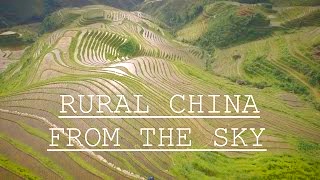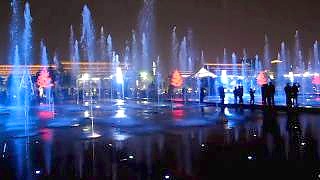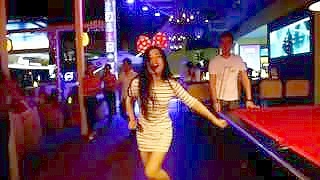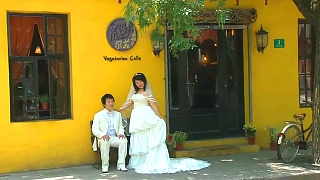
|
With Our Travel Journal ...
ZhuJiaJiao Ancient Water Town Travel Guide
History
Attractions
Activities
Food
Transportation
Tips
History of ZhuJiaJiao
ZhuJiaJiao, often referred to as the "Venice of Shanghai," is an ancient water town located about 47 kilometers from the bustling center of Shanghai. With a history spanning over 1,700 years, this charming town is known for its picturesque canals, traditional Chinese architecture, and tranquil atmosphere. It was established during the Three Kingdoms Period and flourished during the Ming and Qing Dynasties as a vital trading hub.
Top Attractions in ZhuJiaJiao
1. Fangsheng Bridge
The Fangsheng Bridge, built in 1571, is one of the most iconic landmarks in ZhuJiaJiao. It is the longest, largest, and tallest stone bridge in the town, offering stunning views of the water town's canals and ancient buildings.
2. Kezhi Garden
This classical Chinese garden features intricate rockeries, tranquil ponds, and traditional pavilions. Originally built in 1912, Kezhi Garden showcases the beauty of Chinese landscaping and architecture.
3. Qing Dynasty Post Office
Dating back to the Qing Dynasty, this ancient post office is the oldest in eastern China. It provides a fascinating glimpse into the postal history of China and houses a collection of old letters and postcards.
4. Great North Street
Great North Street is the main commercial street of ZhuJiaJiao, lined with quaint shops, tea houses, and traditional residences. It's a great place to shop for souvenirs, local crafts, and taste delicious street food.
Activities to Enjoy
1. Boat Rides
Take a traditional wooden boat ride through the canals of ZhuJiaJiao for a unique perspective of the town's historic architecture and scenic views. The boat rides are a relaxing way to explore the waterways.
2. Walking Tours
Stroll along the ancient streets and alleys, explore hidden courtyards, and admire the well-preserved ancient architecture. Walking tours are the best way to immerse yourself in the charm of ZhuJiaJiao.
3. Tea Tasting
Visit one of the many tea houses along the canals to experience traditional Chinese tea culture. Enjoy a cup of freshly brewed tea while overlooking the serene waterways.
Local Food & Delicacies
1. Zongzi (Rice Dumplings)
ZhuJiaJiao is famous for its zongzi, a traditional Chinese food made of glutinous rice wrapped in bamboo leaves, typically filled with red bean paste or meat.
2. Steamed Pork Dumplings
These delicious dumplings are a must-try in ZhuJiaJiao. They are steamed to perfection and filled with savory pork and a touch of soup.
3. Lotus Root Snacks
A local delicacy, these crunchy lotus root snacks are sweet, sticky, and coated with honey. They make for a perfect snack while exploring the town.
How to Get There
By Bus
Take the Huzhu Express Line from Shanghai Stadium, which takes about 1 hour to reach ZhuJiaJiao. Buses run frequently throughout the day.
By Car
ZhuJiaJiao is approximately a 1-hour drive from downtown Shanghai. You can either hire a private car or take a taxi for a more comfortable journey.
By Metro
Take Line 17 of the Shanghai Metro and get off at ZhuJiaJiao Station. From the station, it's a short taxi ride or a 20-minute walk to the water town.
Travel Tips for ZhuJiaJiao
Visit early in the morning or on weekdays to avoid the crowds and enjoy a more peaceful experience.
Wear comfortable walking shoes as you'll be exploring on foot and navigating cobblestone streets.
Bring cash, as many of the smaller shops and food stalls may not accept credit cards.
Don't forget your camera to capture the picturesque views of canals, bridges, and ancient architecture.
|
 China – economic outlook – part 2
China – economic outlook – part 2












![`US-sponsored separatist groups, backed by Washington for decades, are being mobilized to attack and undermine activities related to the BeiJing 2022 Olympics, starting with the torch relay in Greece. I explain the background of the “Free Tibet” movement and how the US government, through the CIA, backed it as early as the 1950s and transferred its operations to the National Endowment for Democracy (NED) [or `Dominion` / enslavement]. ` With The New Atlas . . . Bonus films - terror activities by US-backed `opposition` in Myanmar . . . Bonus film 2 - subverting the `left` . . . Bonus film 3 - on Ecuador . . . Bonus film 4 - on Cambodia . . . They say : `How dare you put your face in front of my fist ! Serve your master. Or else. ` More . . . On the US plan to nuke Chinese cities - as revealed by Daniel Ellsberg, famous for the `Pentagon Papers`, with NuMuves . . . On the Falun Gong cult . . . *** Planning war on China - part 11 - don't miss it ***](https://img.youtube.com/vi/2w31eNNcGVU/mqdefault.jpg)






















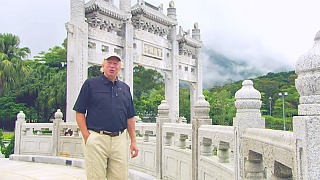
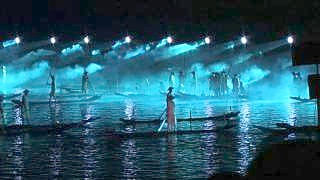








![Quote (from the BBC `news` website, 19th February 2023) : `Meanwhile, friends of the detainees [supposedly lockdown protesters], anxious and worried for their own personal safety, continue to keep tabs on the situation and share information. Many of them live overseas and did not attend the November protests . . . [about saving lives with lockdowns]. ` The lockdowns might have been over the top, but doubtless saved many lives - so that is a matter of debate; and the `protesters` might have had some good arguments [one might say], but the key thing here is whether in reality it was all a Western attempt at subverting China; and if one looks at other articles around the same time / leading up to these `protests` [greatly exaggerated], that seems to indeed be the case. Again, in the BBC`s own words : Many of them LIVE OVERSEAS. In the BBC`s own words : Many of them LIVE OVERSEAS. LIVE OVERSEAS. This is a very important point to keep in mind : these people were not there, but somehow have something to say, and their `not even there` tale is being pushed by MSM. It is the XinJiang / HK scam repeated over, and over, and over again. Who are these people and who do they work for ? [Well hidden of course] Not knowing these facts, why trust them ??? Enough of the BBC - they have no credibility; we are not going to do this every day [when see excrement, step over it, it is not worth analysing]; the lies are easy to spot, if you look. Open your eyes . . . And always remember that propaganda is the first move in war - demonise your `enemy` [everyone `else`]. While frustration can be understood, covert agendas [and foreign recruits?] are another thing. For sure, though, the `daily hate` will continue; and shame on them. *** Once the venom is extracted, the disease is cured. *** Bonus film - the US spent millions of dollars shooting down $12 hobby balloons . . . A thought on the latest BBC's daily China hate article](https://img.youtube.com/vi/1EFiAy8THFA/mqdefault.jpg)



















![Planning War On China part 40 (the encore). From now, all similar content will be on the new Geopolitics page, so do check that out and bookmark. Something Different, health, and psychology videos are likely to also move to their own pages. So we will still cover all these aspects of life, but have more time to focus on Chinese culture and China travel. *************************** Official racism is a very important fact to consider, and because it is is based on propaganda, can be easily missed for what it really is. Yet once seen, it is all so clear. Us and Them - is the sales pitch of supremacists and bomb companies. That is ALL it is. There is no `us and them`; that is just a scam to fool you into obedience / subservience / enslavement. The real schism is that there are real / open-eyed people, and then there are the brainwashed / believers people. Simple as that. Puppets at the top; puppets at the bottom. One life, one world, one family. One has love, or one does not. Real love doesn`t have targets; real love is a light that shines in all directions. Onto the video film . . . With George Galloway in conversation with Jerry`s Take on China . . . Bonus films . . . George at his very best - don`t miss it . . . What is more important - life or money (power) ? Simply believe ? Or be free to see reality ?? No longer puppet. Live more . . . Because it is not about `me` (that is the scam / fantasy, and a big topic in itself - `your problems are all your fault`, is part of it); it is really about `WE`. In China, the people are family. In the West, the people are livestock. And that is the `threat`. [ video v=fIxPv2Dn_P0 ] Oliver Stone interviews Vladimir Putin . . . Taiwan the next Ukraine ? . . . Lee Camp . . . [ video v=OSkpIq3T-Zc ] Racism is racism is racism. There is NO excuse, no matter how `official` it is sold to you. Something like 3 million died in the Vietnam war (not including the carpet bombing of Laos and Cambodia), alone. This is what racism entails. How many times will this lie play out ? Meanwhile . . . Peace. Official racism. Reality is so very different from the 'official' / MSM narrative / fairy tale - DON'T MISS THIS !](https://img.youtube.com/vi/Kc7f4JKhwtk/mqdefault.jpg)








